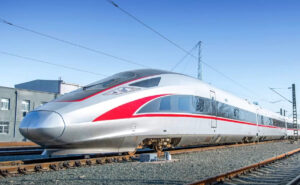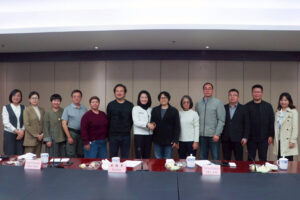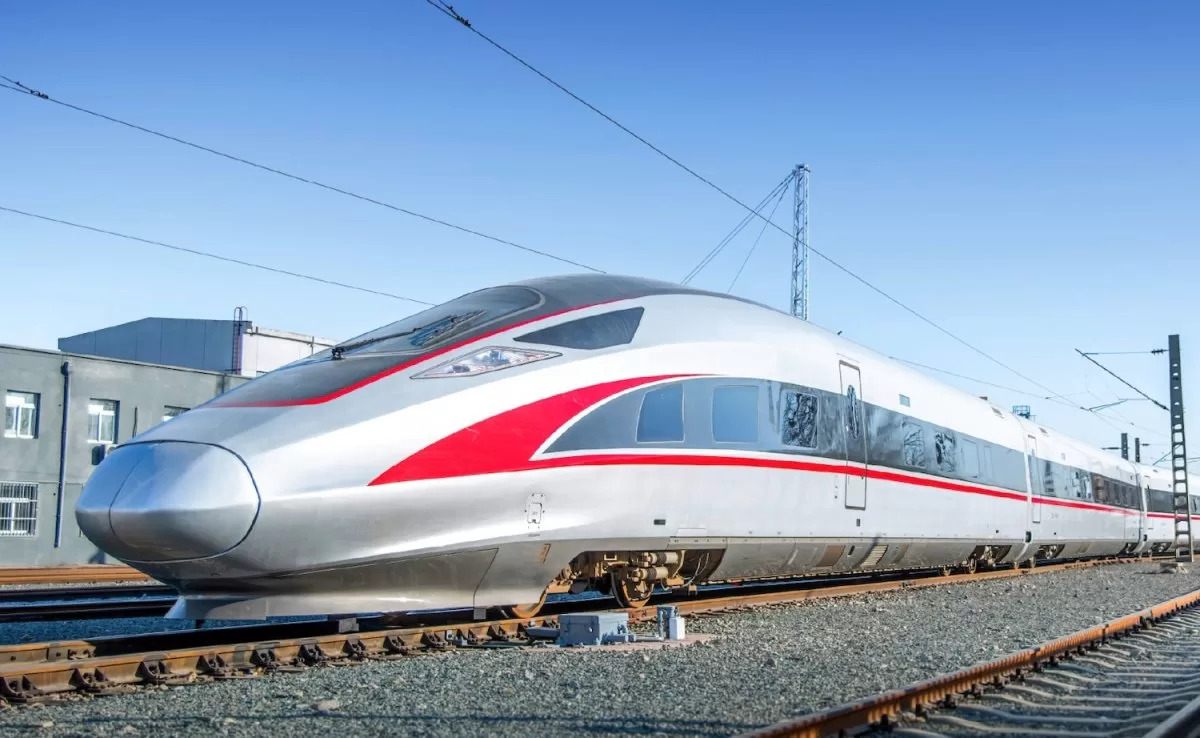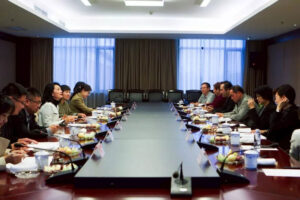
Thailand longs for rail link with China
Ambitious infrastructure plan faces major delays
As Thailand and China continue their long-standing collaboration on the Bangkok-Nong Khai high-speed rail project, public sentiment in Thailand remains a mix of anticipation and frustration.
The ambitious infrastructure plan, which aims to connect major cities in Thailand with China’s advanced rail network, has faced significant delays — stretching over a decade without completion.
The rail line is under construction in multiple phases in Thailand. It will be the first high-speed line in the country once the project is finished.
The first phase, a 253-kilometre line from Bangkok to Nakhon Ratchasima city, is currently divided into 14 civil engineering contracts, with an additional contract for the rail system and train procurement.
As of Sept 25, overall progress stood at 48.6%, according to official data from the State Railway of Thailand, with operations expected to start in 2028. The total cost of the first phase is estimated to be 179 billion baht.
The second phase, from Nakhon Ratchasima to Nong Khai, was approved by the cabinet in February 2025. It will span 357km and cost 341 billion baht to build, with operations expected to start in 2031.
The third phase, from Nong Khai to Vientiane in Laos, has not been confirmed.
There is, however, an existing single railway connection near the First Thai-Lao Friendship Bridge. This railway is envisioned to serve as a major connection along the Kunming city-Singapore central line.
Journalists debate issue
The issue of the Thai-Chinese high-speed rail project was raised recently during a public discussion between members of the Thai Journalists Association (TJA) and the All-China Journalists Association (ACJA) in China.
Six Thai journalists, led by TJA President Norrinee Ruangnoo, were on a cultural and professional exchange visit. The delegation travelled to Lanzhou city in the north-central province of Gansu, and also to Beijing, from Oct 12–16 at the invitation of the ACJA.
At the discussion, the Thai journalists expressed concern about the slow progress of the railway project.
“It’s been more than a decade, and the project still isn’t finished,” one Thai journalist said. “If it had been completed [sooner](#), it could have already linked us more closely with China.”
However, the Chinese participants in the conversation shared a different perspective.
Li Xiaojun, deputy director of public relations for the Gansu Provincial Committee of the Communist Party of China and Director of the Gansu Provincial Government Information Office, said: “I personally benefit from the high-speed rail system. In fact, most Chinese people feel proud when talking about it.”
She emphasised China’s leadership in rail technology, citing its expertise in design, manufacturing and planning.
The discussion also touched on China’s role in bringing high-speed rail to Laos.
Ms Li said she visited Laos in April this year, adding that she was very impressed with the positive impact of the China-Laos railway.
“Locals are happy. It has improved transport and even changed lives at the destination,” she said, adding that such projects could strengthen bilateral ties and elevate living standards.
Looking ahead, she said she hoped Thailand would accelerate the development of its railway infrastructure project.
“I really wish to ride the high-speed train to Thailand one day and explore the country. It’s not just about speed — it’s about the experience, the beautiful views and the journey itself,” she said.
As Thailand continues to navigate the complexities of infrastructure development, high-speed rail remains a symbol of regional connectivity, technological ambition and shared aspirations between the two nations, participants at the discussion agreed.
Source of frustration
While the vision of a seamless high-speed rail network connecting China to Southeast Asia remains compelling, the Thai segment of the project has become a focal point of frustration and debate.
“We’re waiting, too,” said another Thai journalist. “If the project is ever completed, we’ll be there to welcome our Chinese friends at the station.”
The start of the project was held up by disagreements over loan terms offered by China, leading Thailand to decide to self-finance parts of the line. Technology transfer and requirements for Chinese materials and workers were also sticking points for Thailand.
Beyond construction delays, concerns have also emerged about the role of Chinese investors.
Some Thai participants voiced unease over the perceived isolationism among Chinese businesses operating along the railway route.
“Investors often keep to themselves and don’t engage much with local communities,” another Thai speaker said. “It creates a sense of separation.”
Others echoed this sentiment, suggesting that Chinese companies be more transparent and inclusive.
“If the Chinese government is aware of this, perhaps they can encourage better communication and integration,” the Thai speaker said. “It’s not just about building railways — it’s about building trust.”
There was acknowledgement from Chinese participants that these concerns are valid.
“Yes, this is a problem,” one Chinese journalist said. “Even within China, companies don’t always engage with the media or the public effectively.”
As the high-speed rail project remains stalled in Thailand, the conversation has also shifted from engineering to diplomacy, transparency and regional cooperation. (Story continues below)
Golden Jubilee

In celebration of the 50th anniversary of Thai-China diplomatic relations, Ms Norrinee emphasised the long-standing cooperation between the Thai and Chinese journalists’ associations, noting that this year’s golden jubilee of diplomatic ties presents a unique opportunity to deepen collaboration.
“This milestone reflects the enduring friendship and opens new doors for media cooperation in the future,” she said.
Ms Li, meanwhile, said she’s ready to welcome more Thai journalists interested in learning about the lifestyle and media landscape in Gansu.
She also highlighted the importance of mutual understanding through firsthand experience and cultural exchange.
The TJA and the ACJA have maintained a strong partnership for 25 years, regularly organising exchange programmes and delegation visits.
These initiatives have fostered dialogue between media organisations, enabling participants to explore diverse perspectives on journalism, culture, economics, technology and social issues.
This collaboration not only strengthens professional networks between journalists from both countries but also promotes public understanding through transparent, accurate and constructive communication.
The TJA remains committed to advancing this partnership, aiming to enhance the capabilities of Thai media professionals and support the role of journalism in promoting peace, mutual understanding and international friendship, Ms Norrinee said.
Source: https://www.bangkokpost.com/thailand/general/3125368/thailand-longs-for-rail-link-with-china



